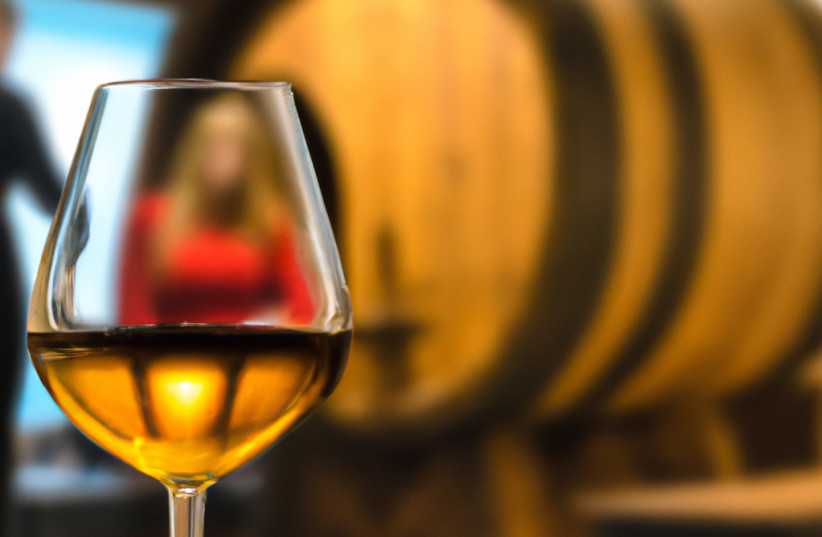Israel has more than 300 wineries, many of which open their doors to the public on weekends for tours and tastings, often accompanied by food. During COVID, many wineries were able to stay open as they weren’t classified as restaurants and had ample outdoor space where guests could either pick up picnic baskets or do some wine tasting.
Now COVID is thankfully behind us, (we hope!) but the tradition of visiting wineries is still in force. And now is a perfect time to do so, especially in the morning before it gets too hot.
For those of you who keep Shabbat, it starts very late these days. And if you drink enough wine as my favorite husband and I did last week, you won’t actually care what you eat for Shabbat dinner. True story: we only served chicken soup with matzah balls and everyone survived.
We joined a wine tour organized by Mateh Yehuda Regional Council, which has about 40 wineries in its region. Judea has also recently been declared a “wine appellation”, the first AO (Appellation of Origin) in Israel. There are two subregions: Judean Hills and Judean Foothills.
In Mateh Yehuda, June is wine month, with dozens of tours and concerts all over the area. You’ve missed it for this year, but mark it down for next year. The wineries we visited all welcome guests on Fridays, and if they are not kosher, on Shabbat as well.

What are the wineries in Israel's Mateh Yehuda?
We started with the Peer Winery in Moshav Tel Shachar. Like many agricultural wineries, this one was originally a chicken coop. Today it is a kosher winery producing 30,000 bottles with a beautiful outdoor tasting area under a large pergola.
Winemaker Ariel Bier, the former winemaker of the large Jerusalem Winery which produces four million bottles a year, wants to challenge wine drinkers to try more than cabernet sauvignon and merlot. Wearing a cowboy hat and with a pistol tucked into belt, Bier says he wants customers to “taste the vineyard.”
“This is my playground,” he said. “My goal is to make people raise their eyebrows in surprise.”
We tried about five wines including a Blanc de Noir (a white wine made from red grapes) called Gold Sheep, and an orange wine (a white wine made the way you would make a red wine) called Red Head Sheep. Sheep are prominent all around the winery, part of which is still a working farm, and there are artistic renderings of sheep at the entrance as well.
Bier told us that he decided not to make any red wines during shmita (the sabbatical year when you cannot harvest grapes or make wine), so his current stock is whites and pinks. Definitely unique wines.
WE THEN moved on to Kerem Barak Winery, also kosher, just a few minutes away. Winemaker Yossi Rozenberg said he took a wine making course at the Sorek Wine School because he was interested in an activity that he and his wife could do together for fun. He never dreamed that it would become his full-time job, but today Kerem Barak makes 20,000 bottles.
Here, the most interesting wine we tasted was the Pet Nat (short for petillant naturel), also known as the Poor Man’s Champagne. The wine is fermented in the bottle and topped with a beer cap. When you open it you never know what you are going to get – it can be funky and cloudy, or clear. The Pet Nat was made with dabuki, one of the few varieties of ancient grapes that has survived until today.
The winery is named after the Rozenberg’s son Barak, who died young from an illness, and many of the labels have pictures that Barak drew. At both wineries, we absorbed some of the alcohol with homemade bread, goat cheese, and vegetables.
The last winery was Sorek, which also has a wine school. The last weekend of every month, Sorek hosts an open house and tasting of its new wines. At least 100 of Israel’s winemakers today have studied at Sorek with the irrepressible Nir Shacham. Sorek, which is not kosher, produces 150,000 bottles of wine a year, the vast majority made by the students.
It is a fun place to visit, with families coming to taste wine and a festive atmosphere that makes you want to sign up for the next winemaking course.
The writer was a guest of the Mateh Yehuda Regional Council.
